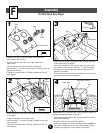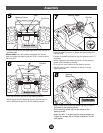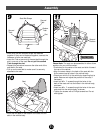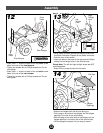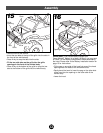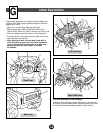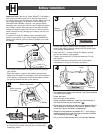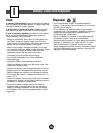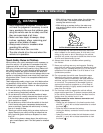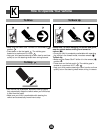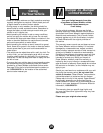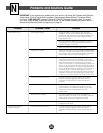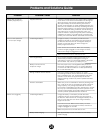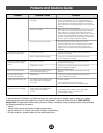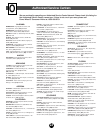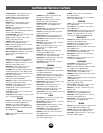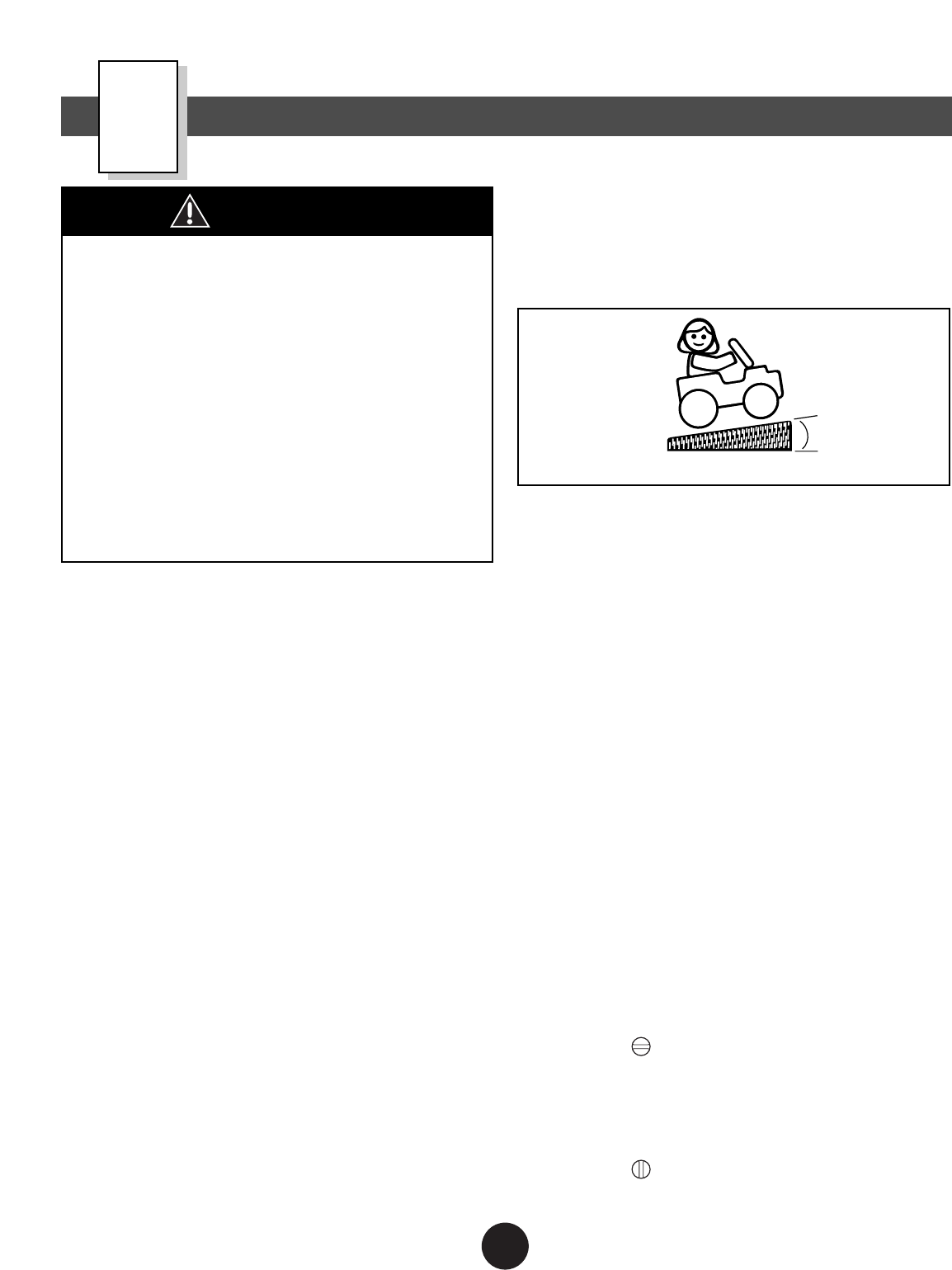
Rules for Safe Driving
10°
Incline should never be more than 10°
5. Do not operate this vehicle with more than one rider
who is seated on the seating area. A child who is not
sitting on the seat or who is standing on the vehicle
could fall off, cause a tip-over or block the driver’s view.
A child could be seriously injured.
6. Always wear shoes or sneakers when operating
this vehicle.
7. Never put anything near any moving parts. Rotating
parts such as motors, gear boxes and wheels can snag
fingers, hair, etc., causing serious injury. Do not allow
operation of the vehicle when it is on its side or in an
upside-down position.
8. Do not operate the vehicle near flammable vapors
(gasoline, paint thinner, acetone, liquid wax, etc.).
The vehicle’s electrical switches, like most electrical
switches, emit an internal spark when first turned on
or turned off. The presence of flammable liquids or
vapors could cause an explosion or a fire. Keep all
flammable products in tightly sealed containers and
away from the vehicle.
9. Do not allow a child to operate the vehicle without
proper adult supervision. To prevent unsupervised use
of the vehicle, disconnect the motor harness from the
battery when the vehicle is not in use.
To disconnect the motor harness connector and
battery connector:
• Rotate the lock fasteners in the hood counter-clock-
wise 90° (
1
/
4
turn) with a slotted screwdriver to unlock
the hood ( ).
• Raise the hood to access the battery.
• Unplug the battery connector from the motor harness
connector.
• Lower the hood and rotate the lock fasteners clock-
wise 90° (
1
/
4
turn) with a slotted screwdriver to lock
the hood ( ).
17
Teach Safety Rules to Children
While children can quickly develop the skill necessary to
drive this vehicle, it is important to remember that their
judgement skills are still very immature. Unsupervised
driving by children can lead to serious injury. Before chil-
dren use this vehicle, an adult should carefully evaluate
the driving area as well as the children’s skill level and
ability to drive it safely. Children are not always able to rec-
ognize or anticipate hazards, even when they have been
taught about them. There is no acceptable substitute for
adult supervision.
Teach appropriate safety rules to your child before allow-
ing operation of this vehicle. These rules should also be
reviewed with neighborhood children or other playmates
who want to drive this vehicle.
1. Do not allow any child to drive the vehicle in the street
or near moving (motorized) vehicles.
2. Do not allow any child to drive near bodies of water
(such as pools or creeks), obstructions (such as furni-
ture, low tree limbs or play equipment), or drop-offs
(such as stairs or decks).
3. Do not allow any child to drive the vehicle in the dark.
A child could encounter unexpected obstacles and
have an accident. Operate the vehicle only in the day-
time or in a well-lit area.
4. Teach your child to avoid driving on steep inclines or
slopes. Restrict your child’s driving to areas that are
fairly level with gentle inclines or slopes of no more
than 10°.
• While driving down a steep slope, the vehicle may
gain unsafe speed, even if the foot pedal is released
to stop.
• While driving across a steep slope, the vehicle may
tilt and tip over. The wheels could lose traction,
causing the vehicle to slip.
• While driving up a steep incline, the motor may
stop and the vehicle could roll backwards at an
unsafe speed.
WARNING
• Adult supervision is required. Children do
not have the judgement necessary to avoid
many accidents. Be sure that children oper-
ating this vehicle can do so safely and that
they are supervised at all times.
• Never use near steps, driveways, steep
inclines, roadways, alleys, swimming pool
areas or other bodies of water.
• Always wear shoes or sneakers when
operating this vehicle.
• Never allow more than one rider.
• The rider should sit on the seat when the
vehicle is in operation.
J



